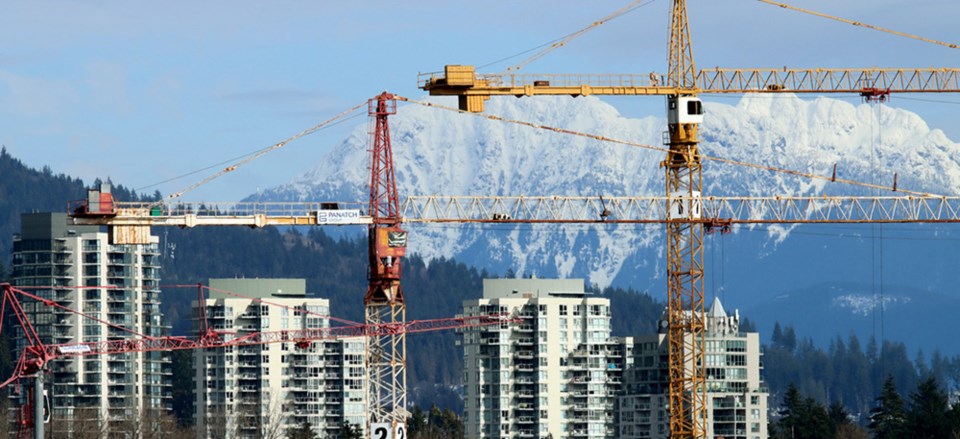Provincial legislation to address the ongoing housing crisis won’t accomplish that, nor make homes more affordable or communities more livable in a changing climate, says Port Moody’s mayor.
Meghan Lahti said it will be up to individual communities to articulate their ongoing concerns about those issues even as they’re pressed to approve zoning bylaw amendments by June 30 to accommodate the province’s new rules in Bills 44, 46 and 47 that were passed late last year.
“I can’t see this righting the ship,” said Lahti at a special meeting of council on Tuesday, June 18, to consider the legislation which mandates increased density near transit hubs like SkyTrain stations and bus exchanges as well as new housing unit minimums on single-family and duplex lots in close proximity to transit.
Several councillors expressed reservations and identified gaps that haven’t been addressed in the legislation, even as they gave first, second and third reading to the bylaw amendments.
“I’m still very concerned about the lack of affordability guidelines,” said Coun. Amy Lubik. “More and more people are falling down the property ladder.”
Coun. Callan Morrison said the new rules don’t address tree canopy protection, as well as increasing needs for community amenities like parks and recreation facilities, infrastructure and how to pay for them.
A staff report said new housing the provincial legislation seeks to create will require boosts to Port Moody’s transportation networks, sanitary and storm water management and even the pressure in fire hydrants across the city.
Coun. Samantha Agtarap said the requirement to subdivide small, single-family lots near transit to allow up to six new homes to be built has the potential to bring more cars and parking problems into residential neighbourhoods. She said the legislation also doesn’t include any kind of provision to encourage small-scale commercial operations like stores and daycares to service all those new residents.
Coun. Haven Lurbiecki worried the pressure to build new homes could compromise Port Moody’s industrial properties.
“We have to relook at ways to protect our industrial land,” she said. “We need to change our official community plan to reflect this legislation and if we don’t do that, we’ll lose our industrial land.”
Coun. Diana Dilworth said the provincial mandates could have the unintended consequence of reducing the number of basement suites and private daycares operating in single-family homes.
But, she added, practical realities will temper some of the theoretical impacts some aspects of the legislation, like the subdivision of single-family lots, could have on communities.
“There are huge financial barriers for people to develop multi-unit housing on their properties,” Dilworth said. “A lot of property owners think this is going to be great, but once they get down to the financial nitty-gritty, it just isn’t.”
Coun. Kyla Knowles said the provincial legislation should be treated as a guide, but it’s still up to individual communities to determine how it’s implemented using tools like the OCP.
“We have to have sensible policies across the city,” she said. “It’s an opportunity to densify gently in areas that otherwise wouldn’t see it.”
Lurbiecki agreed.
“We have full power to control a lot, but we need to use every power we have to respond accordingly.”
Lubik said it will be up to council to keep beating the drum about issues Port Moody is concerned about, like protecting the city’s tree canopy.
“It’s really important we keep advocating,” she said. “We’re all going to be very watchful.”
Still, added Lahti, a lot of work will be required by council and staff to make sense of the legislation’s broad strokes.
“Drawing arbitrary lines on a map doesn’t seem to be the way to plan a community," she said. "Community planning can't be done this way."



